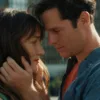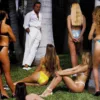Which films, due to the complexity and depth of the themes they deal with, are worthy of being labeled as films inspired by the Russian writer and intellectual Fyodor Mikhailovich Dostoyevsky himself?
Fyodor Mikhailovich Dostoevsky is one of the greatest Russian novelists and intellectuals who went beyond the boundaries of simple fiction by making his books and characters closer to a philosophical essay than to a 'normal' novel. To explain his thoughts and his philosophy, with all their contradictions and implications, would require too much time and space, and this is not the place for it. The easiest and fastest way to describe his poetics is in the definition "artist of chaos". It describes a dark and gritty world almost entirely dominated by evil, in which a good man becomes an idiot, inadvertently exposing and destroying the contradictions and idiosyncrasies of an entire society. Nevertheless, there is still some hope (“Beauty will save the world.”) that remains in our souls.
In this list, you will not find films based on Dostoyevsky's novels (White Nights (Le Notti Bianche, 1957), Dvojnik (The Double, 2013), Quatre Nuits d'un Reveur (1971), ...), but only films inspired by Dostoevsky's world.
Enemy (2013)
It's a slow descent into Gyllenhaal's warped mind as his character slips from one persona to another without noticing until the mysterious ending when the two finally live together. One is an instinct, the other a (seemingly) normal and frustrated person.
Double Act (The Departed, 2006)
In addition to being an excellent crime thriller, Double Game is also an incredibly dark reflection of good and evil and the unreal line that separates them: where does good and justice end? Is it really possible to justify bad things? The film only partially answers these questions, but it does so by telling a thrilling story of double-dealing and, surprisingly, love trying to survive in a world polluted by violence, greed and falsehood.
Pickpocket (1959)
A man approaches an elderly woman in a racetrack crowd. He stands behind her and pretends to watch a horse race. Just before the end of the race, his hand slowly opens her purse and takes out some money. He leaves, while the narrator's voice describes his feelings: he thinks that he is on top of the world and that there is no place for everyone, but only for the chosen ones, for supermen who steal for the good of the whole society. To Michel, the pickpocket, stealing gives immense pleasure, almost in an erotic way. He could have a normal life, but he chooses to continue it as if he is almost trying to destroy himself. It is a kind of fusion between two characters of Dostoyevsky, the Raskolnik and the protagonist from Notes from the Underground.
Welcome Mr. Chance (Being There, 1979)
Chance is a gardener who has lived and cared for plants in a house in the Washington suburbs all his life. When he is forced to enter the real world, he only knows what he has seen on TV. He is not destroyed or oppressed by society and the outside world by a coincidence of happy events. Instead, they want to hear his thoughts on the state of affairs and the country. Director Hal Ashby has made a perfect satire of society and people in general who believe that everything on TV is true, trustworthy and should be followed.
Match Point (2005)
Of all the films on the list, this film by Woody Allen (who has already dealt with Russian literature and Dostoyevsky himself in one of his major masterpieces, Love and Death (1975)) is without a doubt the most obviously "Dostoyevsky". Allen offers us the first hint in one of the first scenes, in which the main character Chris Wilton is reading the book Crime and Punishment. In the film, the director explores not only man with his selfish desire for power and well-being (without thinking about the downfall or death of other people), but also the presence of evil in the world and its incomprehensible and eternal victory over good.
Rope (1948)
"Good and evil, right and wrong, were invented for the common, average man, the worse man, because he needs them," says Brandon, one of the two killers in Hitchcock's film, arguing that his intellectual and physical superiority allows him to kill , because “no one commits murder just to try. No one but us.” Brandon is thus the connecting link between Christ Wilton, the protagonist in The Last Blow, and Raskolnikov, the main character in Crime and Punishment. The Rope transforms the major twists and turns of Crime and Punishment into an incredibly unfriendly satire on the upper class that Hitchcock turns into an extremely tense thriller with his stunning camera work.
Taxi Driver (1976)
The movie Taxi Driver was undoubtedly inspired by Dostoyevsky's short novel Notes from the Underground. Cult character Travis Bickle is rejected by a society that has used him as a commodity, and all he is left with is watching the Big Apple today like a night cab driver, when all the corrupt parts of humanity come to the fore. Travis tries to re-enter society and ironically succeeds in the end when he tries to help Jodie Foster, in which we witness the first impulse of kindness (similar to Dostoevsky's anti-hero when he first sees the prostitute Liza).





